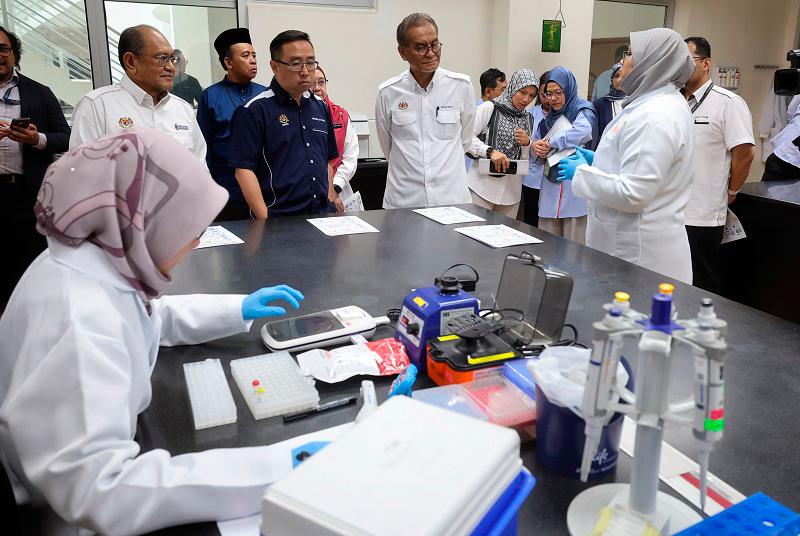BANGI: Malaysia powers ahead in precision medicine!
In Phase 1, 2,000 participants have already enrolled—500 of their genomes successfully sequenced. The goal? 2,400 by the end of 2025, and a tenfold leap in Phase 2.
Driven by the Science, Technology and Innovation (Mosti) and the Health Ministry(MOH), the initiative promises to revolutionise how Malaysians are treated, moving away from generic approaches toward precision care tailored to each person’s genetic blueprint.
Mosti Minister Chang Lih Kang described the project as a game-changer.
“With genomics, we move past one-size-fits-all treatments and into truly personalised healthcare.”
Sample collection is being spearheaded by MOH at clinics and community sites nationwide, while Mosti handles sequencing via the Malaysia Genome and Vaccine Institute (MGVI) and the National Institutes of Biotechnology Malaysia (NIBM).
At the core of the project is the Illumina Novaseq X Plus—Malaysia’s first population-scale genome sequencing machine—setting the stage for rapid, high-volume genomic analysis.
Health Minister Datuk Seri Dr Dzulkefly Ahmad said the project will dramatically improve diagnosis and treatment for chronic and rare conditions.
“This isn’t just science. It’s healthcare justice,” he said.
By mapping the country’s genetic diversity, he said the government could ensure every community gets access to cutting-edge treatment.”
Both ministers marked the milestone with symbolic sampling at MGVI-NIBM, highlighting their commitment to building a national genomic reference.
The initiative supports the Madani government’s broader vision for a stronger, more cost-effective healthcare system. Genomic data from MyGenom will inform treatment plans for major illnesses like heart disease, diabetes and cancer.
“We’re shifting to a healthcare model that’s predictive, preventive and precise. This is the future,” said Dr Dzulkefly.
Beyond medicine, the genomic insights will shape pharmaceutical research, diagnostics, and policy-making—putting Malaysia on the map as a regional biotech leader.
Phase 2, launching after 2025, will focus on inclusivity by sequencing genomes from Malaysia’s diverse ethnic and sub-ethnic communities.
“To make fair, data-driven decisions, we must reflect our nation’s true diversity,” said Chang, adding that underrepresentation in global genomic data has historically led to misdiagnoses and care gaps.
The project is also investing in homegrown talent, building expertise in genomics, biotech and data science—key pillars under Malaysia’s National Science, Technology and Innovation Policy.
With the Illumina Novaseq X Plus in play, local researchers can work faster, cheaper and without relying on overseas labs.
“This means faster diagnostics, sovereign data control, and real-world solutions—from early detection tools to personalised therapies,” said Chang.
Interest is already pouring in from research institutions and private healthcare players. Next up: building a full-fledged genomics ecosystem to bring discoveries from lab to bedside.
In a joint call to action, the ministers urged Malaysians—researchers, academics, industry and citizens alike—to take part.
“Our genes are our strength. This isn’t just a scientific breakthrough—it’s a shared mission. Together, we’re building a smarter, fairer healthcare future for all.”









